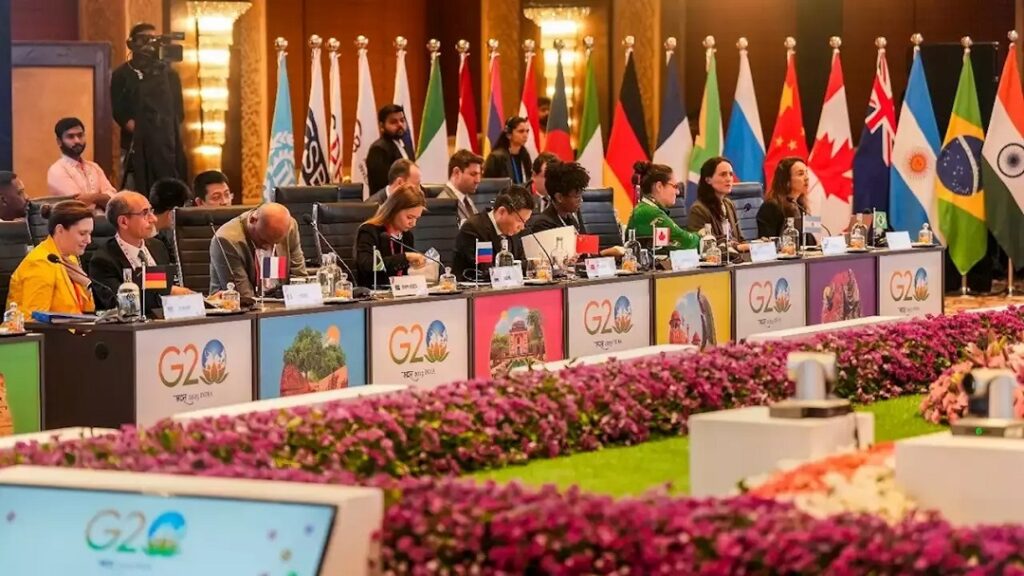- The African Union has been welcomed as a permanent member of the Group of 20, the world’s leading economies.
- For the past seven years, the AU has lobbied for full membership in the G20.
- As a G20 member, the AU will represent a continent that is home to the world’s largest free trade area and rich in the resources needed to tackle climate change.
In a historic move, the African Union (AU) has been welcomed as a permanent member of the Group of 20 (G20), the world’s leading economies. This development underscores Africa’s growing influence on the global stage, as over 50 African nations seek to play a more pivotal role in international affairs.
US President Joe Biden, who advocated for the AU’s inclusion, noted that this decision has been long overdue, while Indian Prime Minister Narendra Modi extended the invitation during his country’s G20 summit. “It is time for all of us to move together,” Modi said.
Africa, a youthful continent joins G20
For the past seven years, the AU has persistently lobbied for full membership in the G20. Until now, South Africa was the sole African representative in the group. This landmark decision symbolises the rise of a continent with a youthful population projected to double by 2050, making up a quarter of the world’s population.
Africa’s 55 member states have consistently pushed for more meaningful participation in global institutions, including the United Nations Security Council. Leaders across Africa are also heightening the calls for reforms in the international financial system.
These reforms are seen as crucial to reducing the financial burden on African nations, which often pay higher borrowing costs than their counterparts, leading to a vicious cycle of debt.
This move towards full G20 membership acknowledges Africa’s potential as a global powerhouse. As a member, the AU will represent a continent boasting of the world’s largest free trade area and one that is rich in the resources needed to combat climate change.
Data shows that Africa holds 60 per cent of the world’s renewable energy assets. What’s more, the continent of 1.3 billion people holds over 30 per cent of minerals crucial for renewable and low-carbon technologies. With vast reserves of resources such as cobalt essential for lithium-ion batteries, Africa seeks to benefit more from its own wealth through local industrial development.
Africa’s role on the global stage
Despite the diversity of its member states, from economic powerhouses like Nigeria and Ethiopia to some of the world’s poorest nations such as Burundi, Somalia, Central African Republic, African leaders are increasingly finding common ground.
This was evident during the COVID-19 pandemic when they collectively criticized vaccine hoarding by the wealthy nations and pulled resources together to secure essential medical supplies for the continent to fight the pandemic.
As Africa seeks to influence G20 decision-making, this newfound status as a permanent member marks a turning point in Africa’s role on the global stage. The move presents opportunities to address pressing issues such as climate change, economic development, and equitable resource distribution.
During their meeting in India, the G20 issued a call to action by urging the resumption of grain, foodstuffs, and fertiliser shipments from Russia and Ukraine. This appeal noted that these agricultural exports are vital for sustaining populations in Africa.
In July, Russia pulled out of the Black Sea Grain Deal, serving a blow to food supplies globally. The disruption of these shipments not only threatens food security in Africa but also exacerbates the challenges faced by vulnerable communities, the leaders said.
Read Also: Collapse of Black Sea Grain Initiative threatens Africa’s food security
What is G20?
G20 is an alliance that emerged in 1999 as a critical response to a series of global economic crises that highlighted the need for a more inclusive platform for international economic cooperation.
This diverse assembly consists of 20 major economies, plus the European Union, uniting nations with varying economic strengths and trajectories. Together, these members wield considerable influence internationally.
They represent approximately 85 per cent of the world’s GDP. Additionally, G20 facilitates over 75 per cent of global trade, and accounts for roughly two-thirds of the world population.
The G20’s significance is underscored by its composition, encompassing both established economic giants and emerging powerhouses such as India, Brazil, and South Africa. This collective power fosters discussions and policy initiatives aimed at addressing complex global economic challenges.
Over the years, the G20 has evolved into a platform where nations cooperate to stabilize economies, promote sustainable development, and tackle pressing issues like climate change and financial reform.
Its annual summits provide a forum for leaders to foster international consensus and shape the course of the global economy, making it a vital institution for addressing contemporary global challenges.











